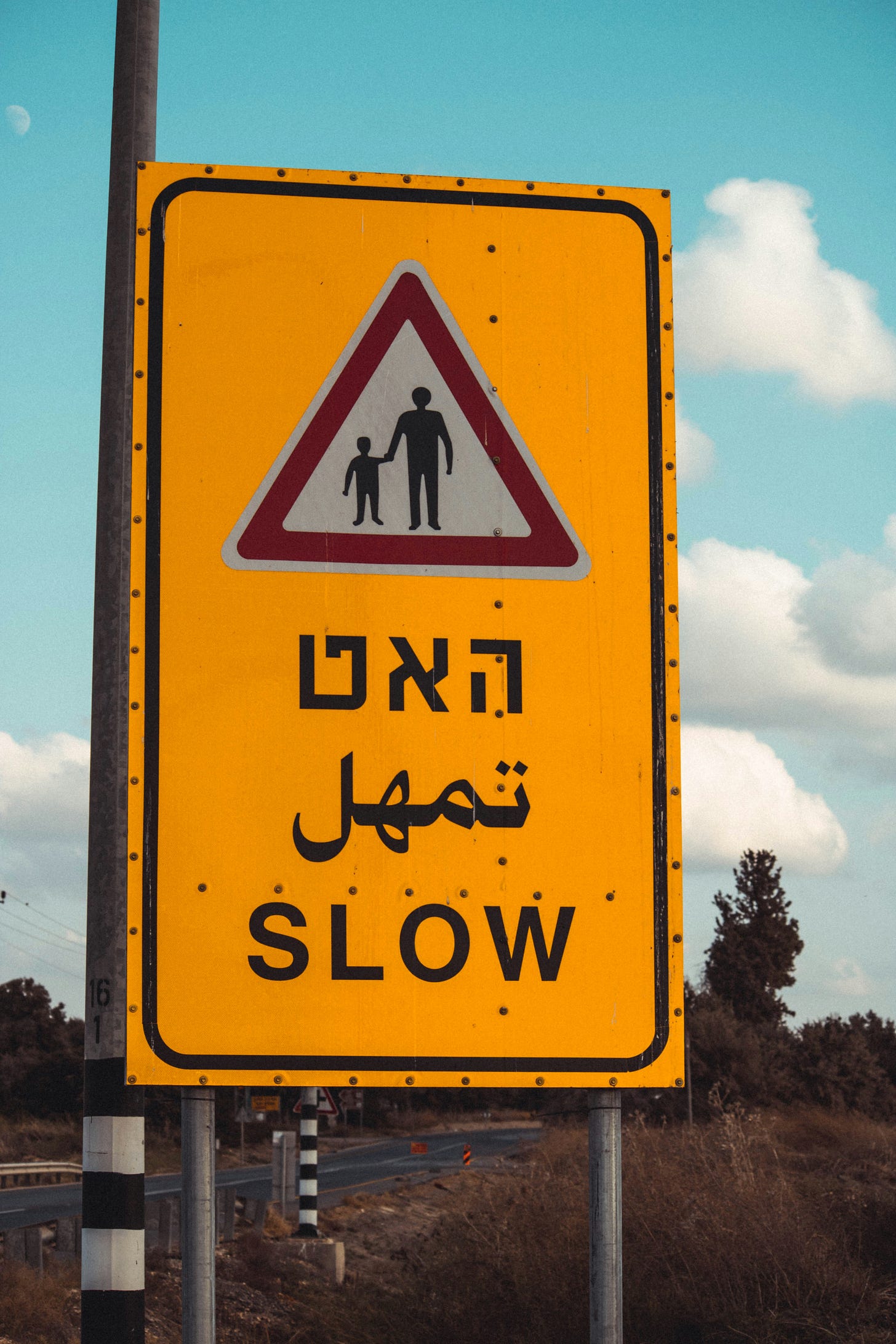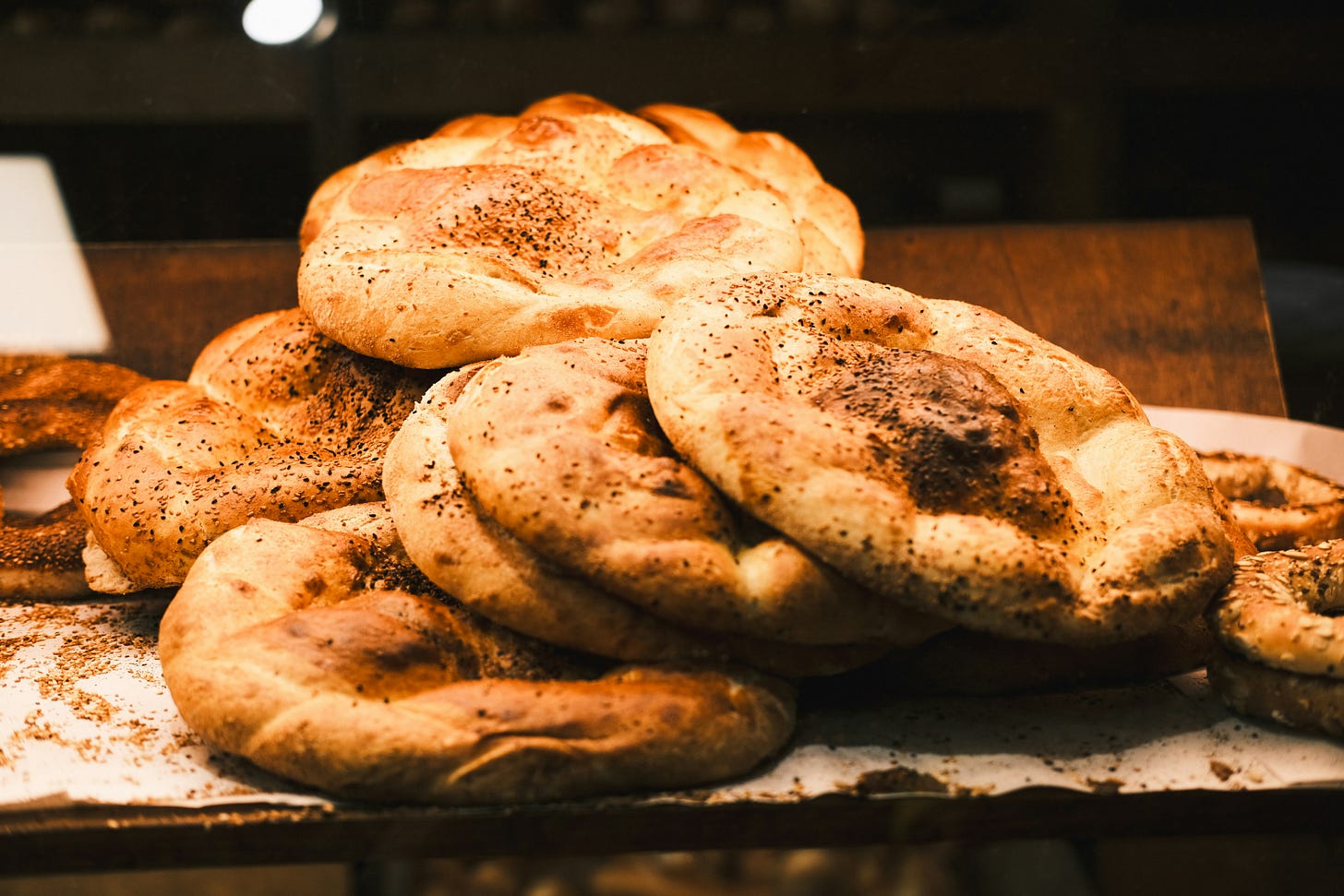Feeling overwhelmed by the news? You're not alone
When it's all too much, look for more human connections
Photo by Itay Peer on Unsplash
IT’S BEEN A MINUTE since I’ve posted here. There are good reasons for this lag, one of which is that I’ve been in the midst of recruiting the next class of graduate students for our journalism program. (Which I love doing! But it takes a lot of time.)
To be honest, though, that’s not the main reason for my recent silence. It’s taken me time to unravel my feelings, and they come down to a profound sense of fatigue.
I know I’m not alone in this. Many of us are feeling news fatigue, a combination of exhaustion from the constantly boomeranging news cycle and a sense of learned helplessness that comes from feeling powerless. Of course it’s always been true that individuals have no control over big world events like elections and wars. Hell, some of us (putting my hand up here) feel it’s hard enough to control a few elements in our own daily lives.
And there’s no question that we live in a time that’s beyond overwhelming. The sheer quantity of news coming at us 24/7 makes me want to hide under the covers. Legacy media, social media, digital standalones, TV and radio—we have way too many streams coming at us all the time. (Which is why I tell my students to turn off their news alerts, so they can control the stream. Not that they listen to me.)
We’re also living in a cultural moment when big things are happening on every level, from the local community to the state to the country to the world. Whatever your political affiliation, the fire hose of news blasting out of Washington, D.C., these days seems relentless and overwhelming. Those of us who are not fans of the current administration feel like we’re constantly being drenched in a toxic tsunami of despair.
The news from the Middle East is part of that tsunami. I can’t imagine what it’s like to live in Israel or Gaza right now. And many American Jews have emotional whiplash from the events of the last few months: Theatrical hostage releases. New bombing campaigns. Protests in the streets on both sides, and the reactions to those protests. Rage and despair all around.
I get why some people just unplug from it all.
But I can’t do that. For one thing, I’m a journalism professor, so I have to stay up on world events. For another, I want to know, to understand, what’s happening in this world I inhabit.
I also know I don’t, I can’t truly understand a lot of it.
For instance, I’ve read reports that describe the protests in Gaza as stands against the tyranny of Hamas. I’ve read analyses that frame them as desperate pleas from people understandably exhausted by 18 months of war. I’ve read commentaries that say the protests actually reflect anti-Israel sentiment. And some that say they are all of the above.
I have no idea what’s true. Probably all of the above, since no group of people is monolithic, especially not a people who have been under siege in so many ways for so long.
Photo by Zeki Okur on Unsplash
SO INSTEAD OF TRYING (and certainly failing) to make sense of it all, I’ve found myself turning instead to more personal interactions. Last month I wrote about the wonderful iftar meal my husband and I shared with a gracious Muslim family and their guests. I’ve stayed connected with one of those guests, a young Turkish man, and a few weeks ago he and a friend of his accompanied me to a Friday night service at my synagogue.
It wasn’t the usual Friday night service but a musical one, led by a singer in the congregation who recently put out an album of her own original melodies. I sat next to my Turkish friend and explained what I could as we went along. He told me later the descriptions of God in the סידור, the siddur—words like eternal, the greatest helper, worthy of the highest love—resonated with him because of their similarity to the ways in which Muslims describe God.
He said he was moved by the melodies and by the hospitality of the congregation. I felt absurdly pleased by his experience and his response.
This small interaction reminded me again of everything we have in common, all that we share: as humans, as people with long histories in the Middle East, as fellow travelers in this complicated and often distressing world.
Being able to offer one another respect, hospitality, and friendship won’t end the war in the Middle East. It won’t make Netanyahu suddenly take a different approach, or Hamas change its plans. It won’t make Trump stop deporting people without due process.
But it’s a meaningful act of kindness and connection at a time when so much feels fractured. And it’s something we can understand, and choose to do.
For today, that feels like enough.






Whiplash is exactly how I feel when interacting on "social" media concerning Israel/Palestine. I seem to elicit the same sorts of responses from both "sides" of the cheerleader keyboard warriors - those who are more concerned about being on the "right" side than for the actual people that live between the Mediterranean Sea and the Jordan River.
I decided I have to act on 1 issue. I chose the hostages. I found a group I could join, and pledged a small monthly contribution.
As a religious Jew, I also added a prayer for them to my daily prayers. In my worldview, that is acting, too.
That's what I am capable of from a senior apartment in Israel.